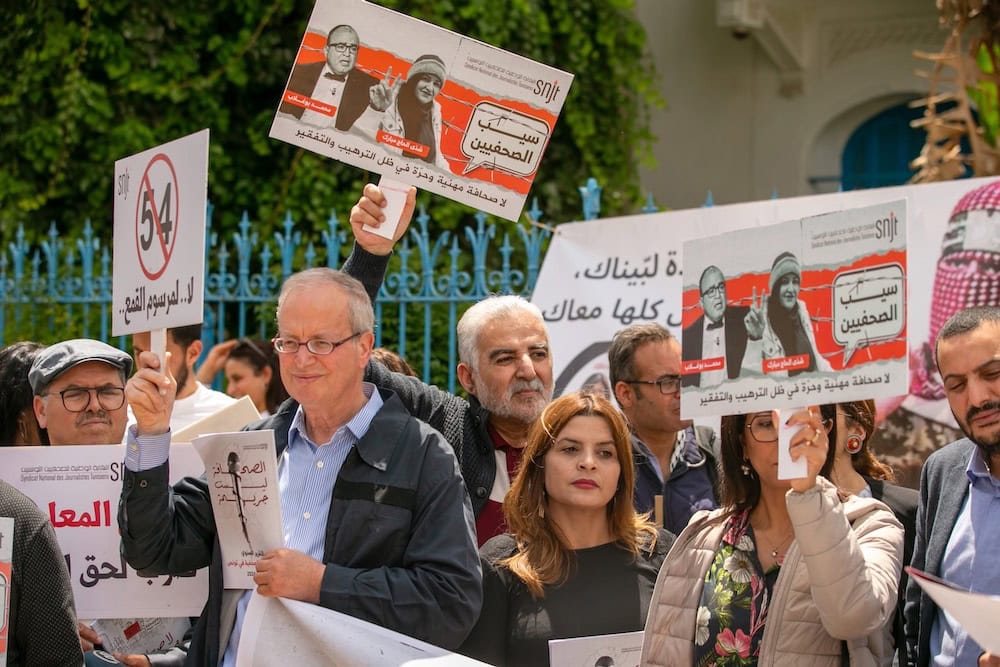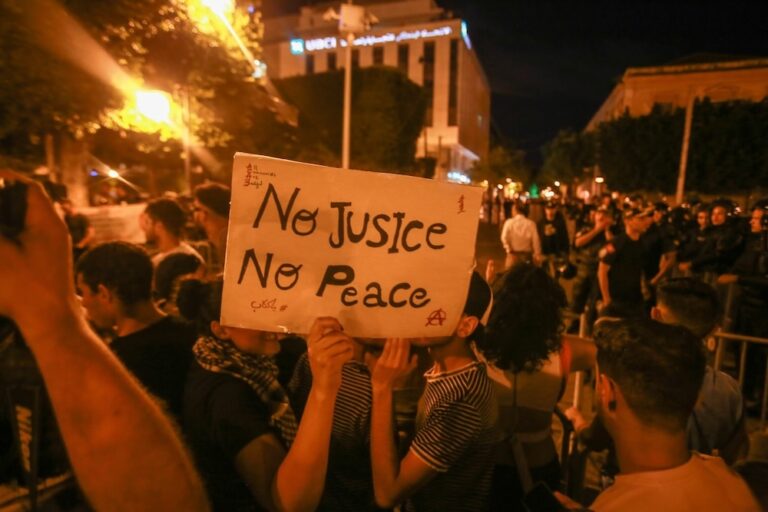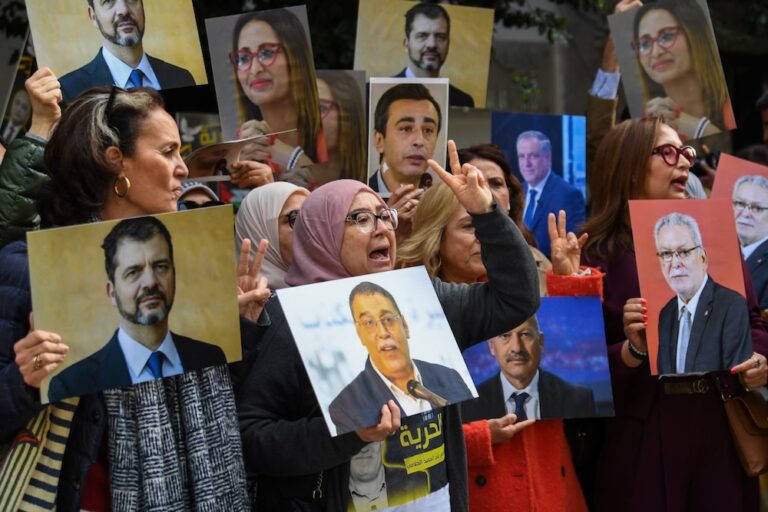"The detention of the two reporters and attack on the France 24 crew are signs of a very disturbing escalation in the crackdown in Tunisia."
This statement was originally published on rsf.org on 13 May 2024.
Reporters Without Borders (RSF) condemns the latest escalation in Tunisia’s harassment of journalists, in which police arrested two reporters critical of the authorities on 11 May and, on the same day, attacked a TV crew that was providing the French international TV news channel France 24 with live coverage of a lawyer’s arrest. The two detained reporters must be freed at once, says RSF.
IFM radio reporter and presenter Borhen Bsaïes and Carthage+ TV reporter Mourad Zeghidi were arrested on 11 May and placed in police custody pending their appearance before an investigating judge, Zeghidi’s lawyer told RSF. Their police custody was extended by 48 hours on 13 May.
Zeghidi was arrested “over a social media post in which he supported Mohamed Boughalleb, a journalist sentenced to six months in prison for defamation and statements during TV programmes since February,” his lawyer said.
Bsaïes’ lawyer said his client was arrested under Decree-law 54, which is supposed to combat online “fake news and rumours” but is regularly used to gag the media and violate freedom of expression.
The police who arrested lawyer Sonia Dahmani at the headquarters of a lawyers’ association the same day harassed the France 24 TV crew who were there, manhandling reporter Maryline Dumas and beating and arresting cameraman Hamdi Tlili, who was released a few hours later.
“The detention of the two reporters and attack on the France 24 crew are signs of a very disturbing escalation in the crackdown in Tunisia. This is a frontal attack on press freedom and a display of a determination to obstruct journalism and force Tunisian media professionals to abandon the hard-won progress they had made in this domain. We back Tunisia’s journalists and call for an end to this serious obstruction that signals the tougher line being taken by an increasingly authoritarian government.”
Khaled Drareni, RSF’s North Africa representative
“I had just started a live stand-up when Hamdi began gesturing. At first I thought it was a technical problem but, when I turned, I saw hooded men entering. They did not say who they were. They took the lawyer Sonia Dahmani away despite protests from her colleagues in the House of Lawyers. We were still live on France 24 when around ten men returned. They wanted to grab the camera and Hamdi tried to stop them. We both shouted that we were registered and that we had permits.”
Maryline Dumas, France 24’s correspondent in Tunisia
Dumas, who is France 24’s correspondent and has been based in Tunisia for nine years, added that the police hit her cameraman as they were arresting him and also hit the lawyers who tried to intervene.
The press freedom situation in Tunisia has worsened in recent months, partly as a result of systematic use of Decree-law 54, which was adopted in September 2022 with the declared aim of combatting offences involving the use of information and communication systems. It has been a source of great concern within the media and society as whole from the outset, and RSF continues to demand its repeal.



